Remembering One of the Fathers of the Montgomery County Agricultural Reserve
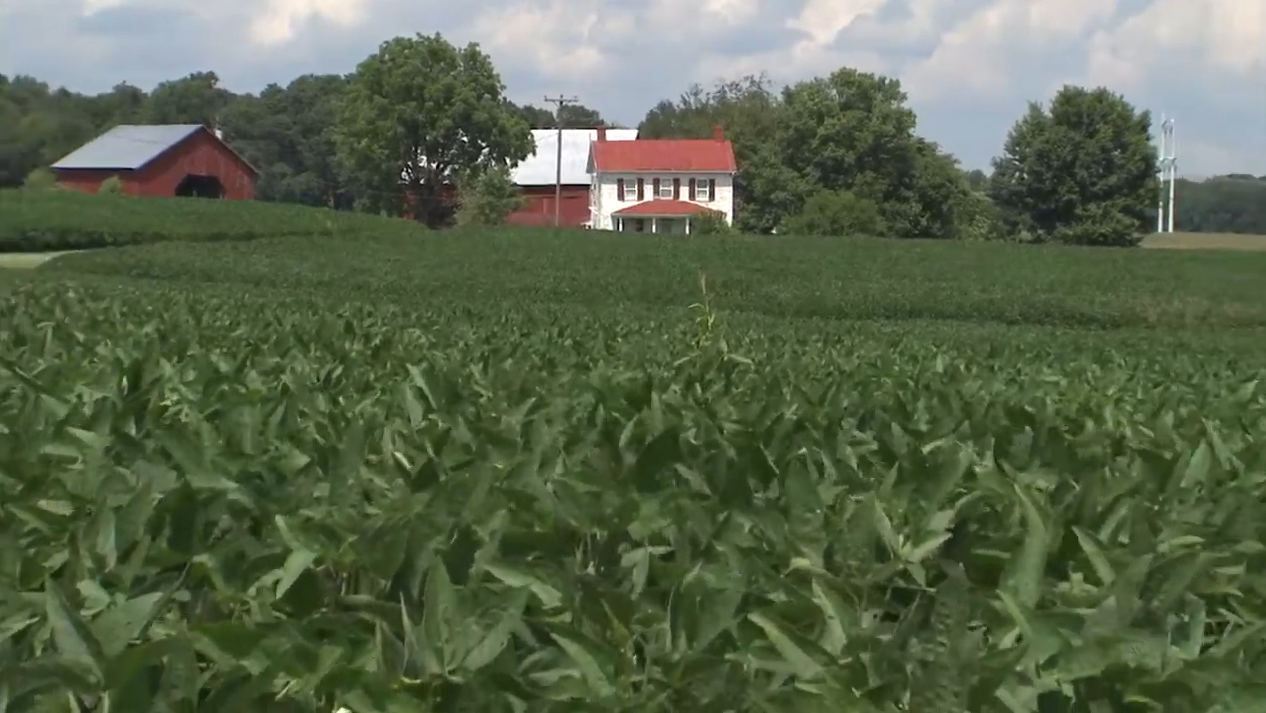
One of the most unique features of Montgomery County is its vast agricultural reserve.
It occupies about 93,000 acres, one-third of the county’s land mass, at Montgomery’s northern edge, and development is severely restricted within its borders, leaving the area with a rural, agricultural feel. It’s widely considered one of the most significant land preservation efforts that a local government has ever undertaken.
Through the years, the agricultural reserve has also become a political symbol, a state of mind, and, occasionally, a flashpoint — a living embodiment of Montgomery’s commitment to environmentalism and good government.
One of the fathers of the ag reserve, former Montgomery County Councilmember R. Scott Fosler (D), died on March 10 after a 14-month battle with melanoma that took a rapid turn for the worse in the final days of his life. He was 76.
Fosler is far removed from being a household name in Montgomery County — even in political circles. And yet his death is being mourned by family, friends and admirers, who say his impact on county governance is indelible.
“He was passionate, dedicated and thoughtful,” said County Councilmember Andrew Friedson (D), whose current district includes Chevy Chase, where Fosler lived, and a portion of the ag reserve.
A memorial for Fosler has been scheduled for Tuesday at 4 p.m. at Westmoreland Congregational United Church of Christ in Bethesda.
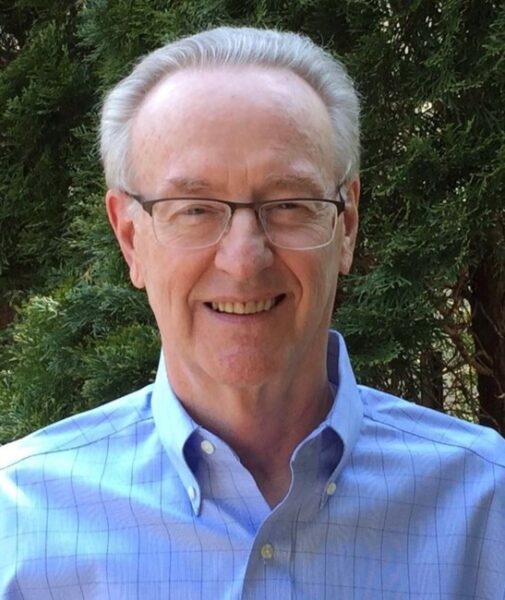
R. Scott Fosler. Family photo.
“This is someone that next generation folks need to study up on,” said Caroline Taylor, executive director of the Montgomery County Countryside Alliance, an advocacy group that works to promote economic, land use and transportation policies that preserve the natural environment, open spaces and rural lands.
Scott Fosler was born on June 26, 1945 — the day the U.N. was founded — and grew up in Towson. He was shaped by the era in which he came of age.
“We were part of the turmoil of the ’60s,” his wife of 41 years, Gail Fosler, said in an interview. “The beginning of the civil rights movement. The protesting. The push for change was bigger than it is now. And obviously, the need for change was huge.”
While Fosler may have occasionally found himself on the frontlines picketing, he was more interested in the mechanics of government and best practices to ensure that government was delivering the best product for the people.
“He was very much a believer that you don’t just talk about things — you figure out what works and put it into practice,” Gail Fosler said.
Government is more than politics and it’s more than bureaucracy. In its purest form, it’s a reflection of “the public collective,” as Scott Fosler liked to say, and the foundation of strong communities. Rather than become a lawyer or go into business, like so many of his college classmates, Fosler received a master’s degree in public affairs from the Woodrow Wilson School for Public and International Affairs at Princeton University and focused on government for the rest of his life.
Initially, given his passion for conservationism, Fosler considered a job with the U.S. Forest Service, but was warned by a career official there that “after 20 years, you may get some responsibility,” his wife recalled. So Fosler went to work instead for organizations that studied public administration and sought to bring good government to far-flung corners of the globe. These groups included the Institute of Public Administration, the National Commission on Productivity, and the National Academy of Public Administration, where he eventually became president.
The Foslers moved to Chevy Chase in the early 1970s and almost immediately became dismayed at the volume of development projects that had been approved for downtown Bethesda and the surrounding area.
“Scott moved into town and found the town was under attack,” Gail Fosler said. “There was a Chinese wall of apartment and office complexes along East-West Highway.”
Scott Fosler was determined to limit any future sprawl.
He became a civic activist and then won a seat on the Chevy Chase Town Council, in an era where the council met at Chevy Chase Elementary School and councilmembers folded themselves into cramped classroom desks. It turned out to be one of two stints for Fosler in town government, because he served on the council again 40 years later. He also served twice as mayor.
“Scott’s civility and respectful approach in all his engagements brought out the best in his colleagues,” said Barney Rush, Chevy Chase’s current mayor. “His comments and observations were marked by thoughtfulness, keen and intellectual curiosity, and a warm and wry sense of humor that revealed a sympathetic understanding of human nature.”
On the town council, Fosler won commitments to create parks adjacent to downtown Bethesda, and was also instrumental in establishing the popular Lee Dennison Sustainable Garden, which was meant to encourage natural landscaping practices in the community.
In 1978, Fosler won an at-large seat on the Montgomery County Council as a slow-growth candidate. He prided himself on his low budget campaigns, and frequently railed about the influence of money in local politics. Household improvement projects were frequently put off so Fosler would have backup funding available for his campaigns — something he and his wife jokingly took to calling campaign equity.
“Once, someone sent a $500 [campaign] check, and we said, ‘What does he want?'” Gail Fosler recalled.
Once elected to the county council, Fosler threw himself into his work, and his wife, who had a busy job of her own as a top staffer with the U.S. Senate Budget Committee on Capitol Hill, remembers having to attend some council meetings at night just to see him.
Former County Councilmember David L. Scull (D), who served with Fosler, said his former colleague brought a unique perspective to the job because of his time in town government, and helped smooth relations between county leaders and their municipal counterparts.
“It isn’t always easy for different levels of government to communicate so well,” Scull said.
It wasn’t long before Fosler tried to apply some of the lessons of down-county development battles to the more rural Upcounty. Expanding on an idea that was first worked on by Scull’s mother, former County Councilmember Elizabeth Scull (D), and fine-tuned by Royce Hanson, the chair of the Montgomery County Planning Commission, Fosler went to work crafting legislation to preserve wide swaths of land in the upper third of Montgomery County.
“It was not an easy fight,” Taylor recalled. “People were pissed. They felt entitled to as much density as they could get.”
Debate was contentious at times, and Fosler had to convince Upcounty land owners that they would not be robbed of opportunities to monetize their property — “threading the political needle,” his wife called it.
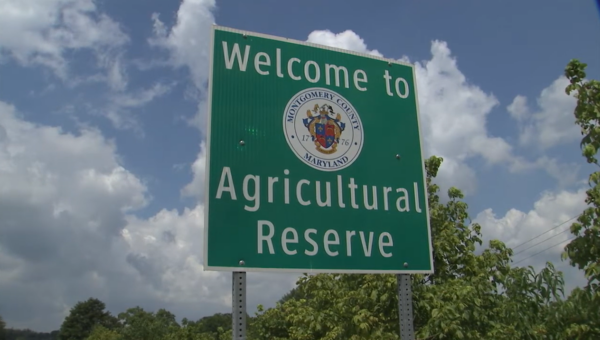
Montgomery County Council photo.
Eventually, in 1980, the council passed legislation to create the Agriculture Reserve. Four decades later, more than 500 farms are still operating in the county, which generate about $300 million a year in tax revenues and related economic benefits.
During his time on the county council, Fosler was also an advocate for higher teachers’ salaries and expanded special education services. He helped create the county’s technology corridor along Interstate 270 and helped broker the merger of the county’s professional and volunteer fire companies. He also reformed the county council’s committee structure, staff operations, and information systems.
In 1986, Fosler briefly considered running for a vacant congressional seat in Montgomery County, but ultimately chose to step away from politics, in part so he could spend more time with his family. Gail Fosler said her husband loved serving in elective office and she always encouraged his political endeavors.
“It had to be a mutual commitment and it was a mutual commitment,” she said. “But it was a hard commitment.”
‘A natural leader’
Yet a funny thing happened on the way to Scott Fosler’s political retirement: He wound up staying as involved as ever, particularly in environmental causes. In fact, every time he was invited to join a movement or organization, he wound up playing a leadership role.
“He’s such a natural leader that every time someone asked him, he became the leader,” Gail Fosler said.
In the years after he left politics, Scott Fosler served as president of the Board of Directors for the Audubon Naturalist Society, and as a board member for the Montgomery Countryside Alliance and the Alliance for the Chesapeake Bay, among other gigs. One of his principal passion projects was working over the past several years to protect the Ten Mile Creek watershed and the Little Seneca Lake Reservoir, the only fresh water emergency water source in Montgomery County.
Fosler brought together stakeholders, discussed climate goals, zoning laws, and drought forecasts, and worked to bring a consensus, Taylor recalled.
“You couldn’t come away from these meetings and not think, ‘Mercy, this guy is buttoned,'” she said. “He’s really got it going on. He took such a reasoned, practical, fact-based approach.”
Environmental advocates say Fosler’s advocacy convinced county officials to prevent development on properties near the reservoir watershed. And his work has sparked ongoing discussions about crafting a long-term regional water plan, as he argued that the water supply would be impacted by climate change.
“Scott has been an inspiration, a mentor, and a dear friend for so many of us,” the group Friends of Ten Mile Creek and Little Seneca Reservoir wrote in a published tribute.
In early 2021, when the Montgomery County Council was considering legislation that would have allowed up to 150 large solar energy arrays on Montgomery County agricultural land, Fosler wrote an influential op-ed in The Washington Post urging county leaders to slow down and not take any action that would jeopardize the county’s robust agricultural economy or compromise fertile soil.
“Make no mistake: We need to consider changes and initiatives required to transform our county and its economy and to advance social and environmental objectives,” he wrote. “But we don’t need to consider them now, especially amid a pandemic when we cannot effectively bring stakeholders together in constructive dialogue.”
Ultimately, the council voted to limit the number of renewable energy projects permitted on ag reserve land — a decision that still burns Del. Kumar P. Barve (D-Montgomery), chair of the Environment and Transportation Committee in the House of Delegates. He fumes that while the Maryland Farm Bureau is now working with land owners in rural parts of the state to attract renewable energy developments, some property owners and environmentalists in Montgomery County are continuing to resist the idea.
“The preservationists are generally people who tend to see the ag reserve as a gated community for themselves,” Barve said. “And you have some environmentalists who don’t seem to realize that carbon-free electrons have to come from somewhere.”
Just three weeks before Fosler died, businessman David Blair, a Democratic candidate for Montgomery County executive, asked to meet with leaders of the Montgomery County Countryside Alliance, who were preparing questionnaires for candidates for local office. Even though his health was getting worse, Fosler insisted on taking the lead in advance of the group’s interview.
“This is important how we present ourselves,” Taylor recalled Fosler saying. “We have to be as strategic as we can with our questions.”
Being strategic about politics and policy was where Fosler excelled, his wife said.
“Democracy is a contentious process,” he used to say. “Every single issue we deal with, there are competing interests. It’s like cutting a diamond — you have to find an angle.”
In addition to his wife, Fosler is survived by a son, Michael Fosler, a brother, Howard Fosler, and five nieces and nephews. People interested in attending the memorial service and the reception that follows can email [email protected].


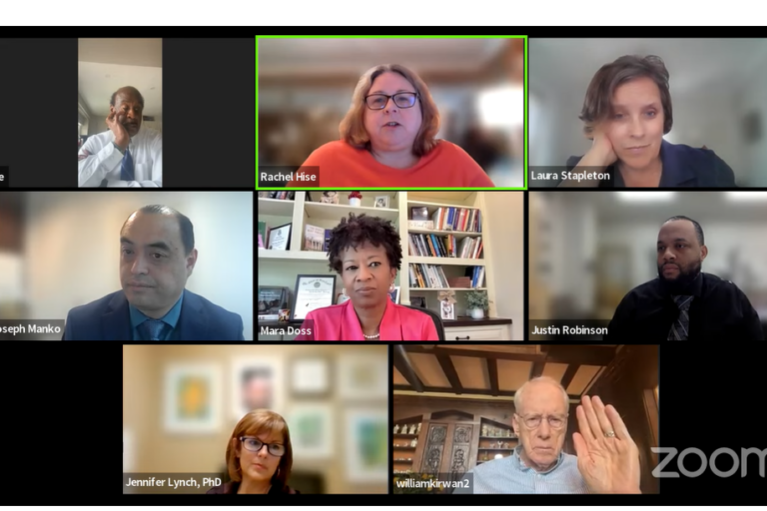
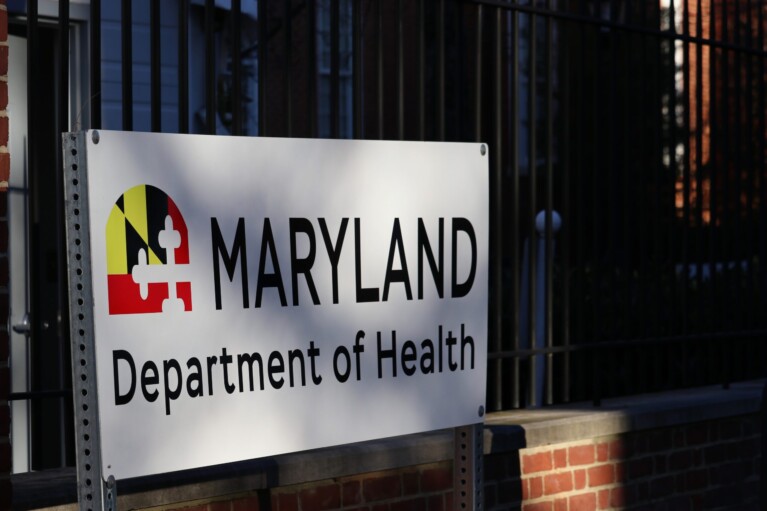
 Creative Commons Attribution
Creative Commons Attribution